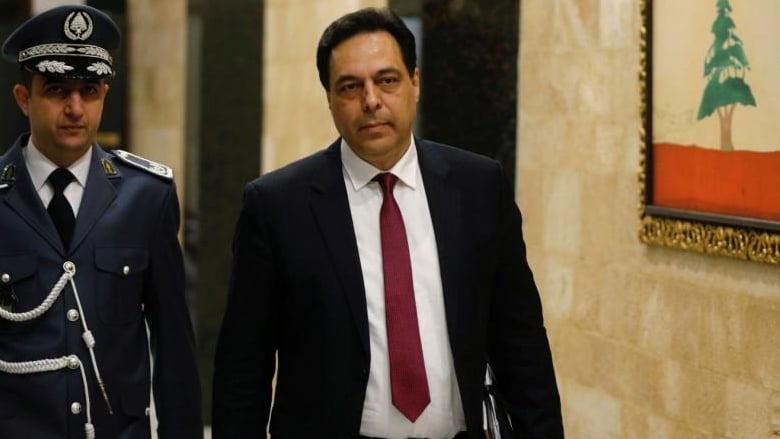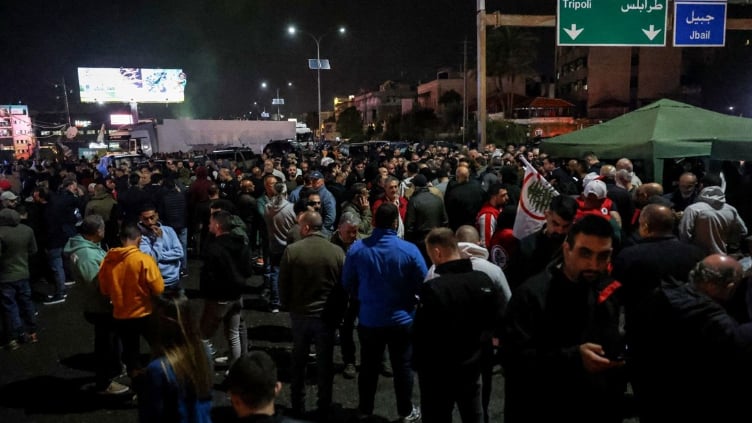Despite the fragility of Lebanon’s democracy, it has managed to survive in an environment that has been dominated by totalitarian rule. When military coups were fashionable in the Arab world during the 1950s and 1960s, Lebanon’s parliament chose military commander Fouad Chehab as a consensus candidate and appointed him to the presidency. Although he had an easy majority to extend his presidential term for an additional six years in 1964, he refused and insisted on leaving office.
In addition to this democratic fragility, Lebanon’s diversified structure and deep divisions have also allowed foreign interference, no matter who the players were. In spite of this, Lebanon has never slipped into military governance. This was always an option beyond Lebanon’s capacity and beyond the Lebanese army’s ability as well.
Recently, there have been demands in Beirut for the military to take over, a request that comes in response to what many Lebanese view as a failure of the political class overall to properly govern the country amid social collapse and the coronavirus outbreak.
The cabinet has been reluctant to announce a state of emergency to confront the pandemic, preferring to call for public mobilisation and partial lockdown without a strict curfew. This, some believe, can partially be explained by fear of granting the army greater power and access to governance. This is an option that President Michel Aoun and Prime Minister Hassan Diab would rather not support under any circumstance.
The Lebanese army has traditionally confronted immense difficulties when local tensions are on the rise and divisions between Lebanon’s various stakeholders increase. The structure of the Lebanese army also reflects society’s diversification. Military intervention cannot take place in the same manner as in other countries.
Having said that, the cabinet is confronting major political impediments from the parties that support it not to mention the parties that refused to grant it confidence in the first place. In an astounding analogy, the ruling parliamentary blocs are giving the cabinet a hard time by escalating their requests in return for their continued support. Demands range from clientelist administrative appointments for key government positions to striking deals in money-generating sectors such as electricity and others.
If the three largest supporting blocs – Aoun’s Free Patriotic Movement and the Shia Amal Movement and Hezbollah – withhold their support for Diab’s government, it would collapse immediately. Nabih Berri, the powerful speaker of parliament and Amal Movement leader, harshly criticised Diab and his cabinet for their hesitation to repatriate Lebanese trapped abroad by the coronavirus pandemic. The cabinet subsequently urgently approved a mechanism to secure their return.
These three blocs could topple the current government and replace it with a new one whenever they want. Unverified reports and leaked information circulated in Beirut recently that June might be an appropriate date for taking such a step. Of course, no one ponders pursuing such an option in the middle of a global pandemic.
Diab faced another challenge after four former prime ministers – Saad Hariri, Najib Miqati, Fouad Siniora and Tammam Salam – issued a joint statement warning him against following a twisted approach when making forthcoming administrative appointments. Slowly but surely, the government seems to be increasingly squeezed between its political supporters and opponents.
Over the last few years, Lebanese has had a bitter experience when creating new cabinets consumed long months of negotiations -- a process that is most probably far too costly to go through again, particularly taking into account the enormous economic, financial and social difficulties Lebanon is facing. The status quo might serve best for the time being, at least for the major players in the Lebanese political elite.





